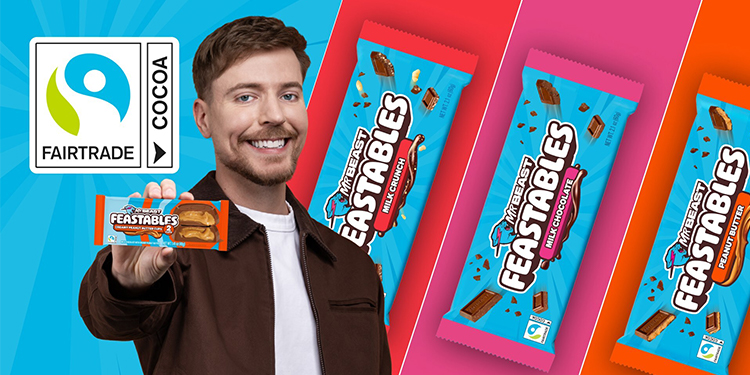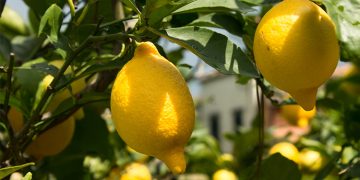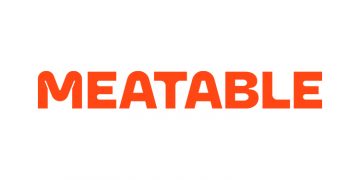Feastables now sources 100 percent of its cocoa from Fairtrade certified cooperatives. The certification ensures Feastables chocolate is produced in line with the rigorous economic, social, and environment sustainability standards the Fairtrade label is known for, to help protect the livelihoods of cocoa farmers, farm workers, and their families.
Commenting on the nearly six million people who rely on cocoa farming to make a living at often less than $1 (USD) per day, Jimmy Donaldson – better known as MrBeast – and Founder of Feastables said, “The status-quo of the big chocolate sector means nearly half of all children living in cocoa communities in Ghana and Côte d’Ivoire are engaged in illegal child labor. We created Feastables, and we’re going to use the incredible network of our fans, to change the way business is done in cacao-growing regions around the world. I know we can create chocolate that people can afford and that also pays farmers fairly, so kids don’t have to work.”
“Cocoa farmer livelihoods are on the line. Despite chocolate being a hundred-billion-dollar industry, most of the people growing cacao, the key ingredient in chocolate, live in poverty. Farmers, especially in West Africa, continue to be excluded from their fair share of the profits and are struggling to adapt to the devastating impacts of climate change, crop disease, aging trees, and persistent price volatility,” said Amanda Archila, Executive Director, Fairtrade America.
She continued to say, “By partnering with Fairtrade, Feastables is leading the industry by example. Feastables is taking their commitment a step further by paying the Fairtrade Living Income Reference Price, which will help farmers invest in sustainable production and support a fair living for themselves and their families so that cocoa growing communities can thrive.”
For Feastables, the breadth and depth of Fairtrade’s impact and brand recognition throughout the global market means customers from across different regions will understand the impact of the certification. For example, globally, 71 percent of shoppers recognize the Fairtrade Mark and, critically, 86 percent trust it. Also, Fairtrade works with over two million farmers and workers in 70 countries around the world.
“It is an absolute honor for Feastables to be working with Fairtrade and for all of our chocolate packaging to include the esteemed Fairtrade certification,” says Alex Zigliara, CEO, Feastables. “Simply put – Fairtrade is the most relied upon standard and source for those looking to buy products that are ethically and sustainably sourced. We know this is meaningful for our customers and helps us to achieve our central purpose of getting children off working farms and into schools.”
Feastables’ Ethical Sourcing Strategy
Aligning with Fairtrade Standards is another significant step within Feastables’ larger commitment to transform the West African cocoa sector and get 1,500,000 kids out of child labor and into local schools.
As part of its Ethical Sourcing Strategy, Feastables is taking immediate and significant action in three ways:
- Sourcing 100% Fairtrade certified cocoa
- Paying farmers and their families the Living Income Reference Price always because stopping child labor starts with addressing its root cause – poverty
- Working exclusively with farms that actively implement child labor monitoring and remediation systems (CLMRS) to identify, address, and prevent child labor
In addition, Feastables is investing in local communities, in children’s education and their wellbeing, and ensuring farmers have access to skilled and mechanized labor to successfully operate their farms, without child labor.
Regional Packaging Rollout: Feastables’ fans can expect to see Fairtrade certified packaging start to rollout in stores by Summer 2025. Consumers seeking certified products are asked to check the packaging first before purchasing.




















